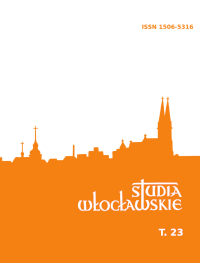To discover the treasure of Eucharist
DOI:
https://doi.org/10.52404/ttnwloc.stwl.23.14Keywords:
preparation of Eucharist, Church community, God’s convening, defication, sanctification of human and world, sacrifice, believer’s preparation, priest’s preparation, intention’s declarationAbstract
The suitable preparation underlines the importance of the event. That is why the Eucharist must be prepared, because it was prepared by Christ Himself and now it requires, all the time, verification of its entire content’s perspective. At that point, difficulties can be found in the habits of the believers and shepherds, like being too attached to intentions and scholarship or understanding of Sunday duty. Meanwhile, the miracle unity of the believer and Christ, who saves and renews us, is accomplished in the celebration of Eucharist. By human renewal the renewal of his environment and all the creation is made. During the Eucharist the Church community as a God’s convening is revealed. It is included in the Saviour sacri-fice, which is made present on the altar. The direct preparation of the believer is expressed by a proper festive outfit, a care of active participation and a spiritual preparation. The preparation of the priest is more complex. Apart from the attitude of faith, he is required to be more aware of the holy activities he makes. There are century-honoured prayers which can help. Their aim is to ensure himself the need of God’s help when he approaches the sacred secrets.
Downloads
References
Chromy R., Eucharystia daje życie. Tematyka, założenia i cele programu duszpasterskiego dla Kościoła w Polsce na lata 2010–2022, w: Program duszpasterski na rok 2019/2022 „Wielka tajemnica wiary”, red. J. Bartoszek, [Katowice], s. 11–22.
Dunaj B., Uniwersalny słownik języka polskiego, Warszawa 2007.
Faustyna, św., Dzienniczek, Kraków 1979.
Głowa S., Bieda I., Breviarum fidei. Wybór doktrynalnych wypowiedzi Kościoła, Poznań 1998.
Granat W., Sakramenty święte, cz. 1: Sakramenty w ogólności. Eucharystia, Lublin 1961.
Grelot P., Lud, w: X. Leon-Dufour, Słownik teologii biblijnej, wyd. 3, Poznań – Warszawa 1985, s. 425–435.
Jan Paweł II, List do kapłanów na Wielki Czwartek Kapłaństwo służebne, 8 IV 1979.
Jan Paweł II, List apostolski Dies Domini, 31 V 1998.
Kunzler M., Liturgia Kościoła, Poznań 1999 (Amateca, t. 10).
Missale Romanum, Romae 1949.
Missale Romanum, ed. tip. 3, Typis Vaticanis 2002.
Okure T., Ewangelia według św. Jana, w: Międzynarodowy komentarz do Pisma Świętego. Komentarz katolicki i ekumeniczny na XXI wiek, red. W.R. Farmer, wyd. 2, Warszawa 2001, s. 1302–1363.
Pontyfikał Rzymski. Obrzędy święceń biskupa, prezbiterów i diakonów, Katowice 1999.
Sobór Watykański II, Dekret o posłudze i życiu kapłanów Presbyterorum ordinis, 7 XII 1965.
Vagaggini C., Il senso teologico della liturgia, ed. 4, Roma 1965.





